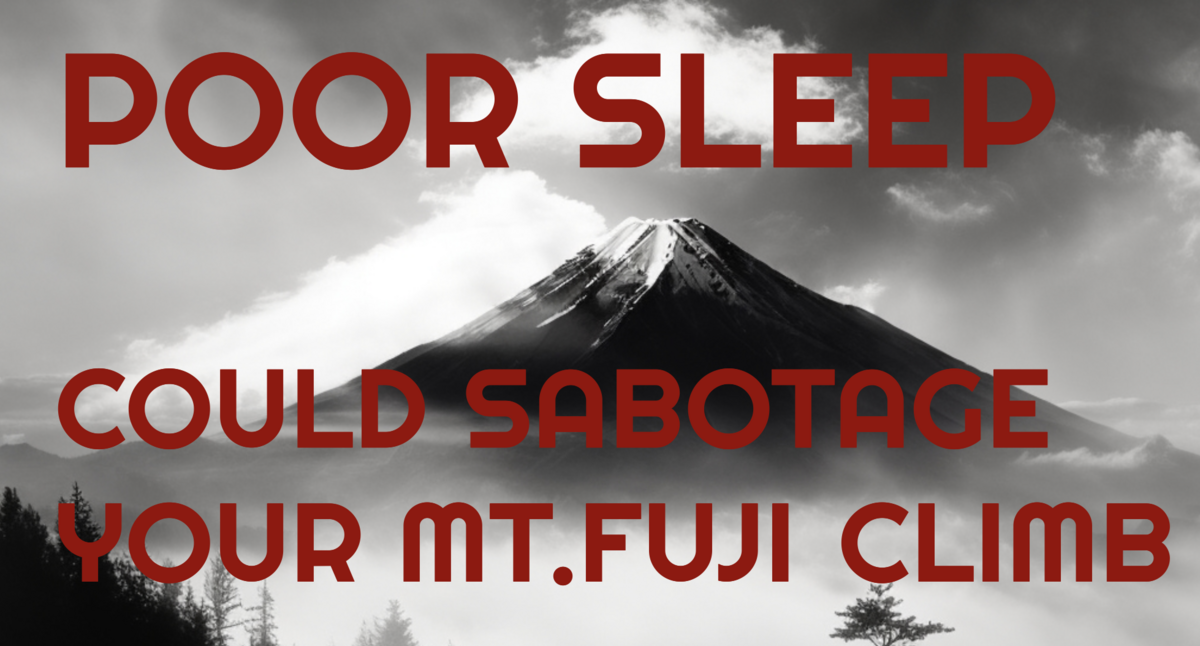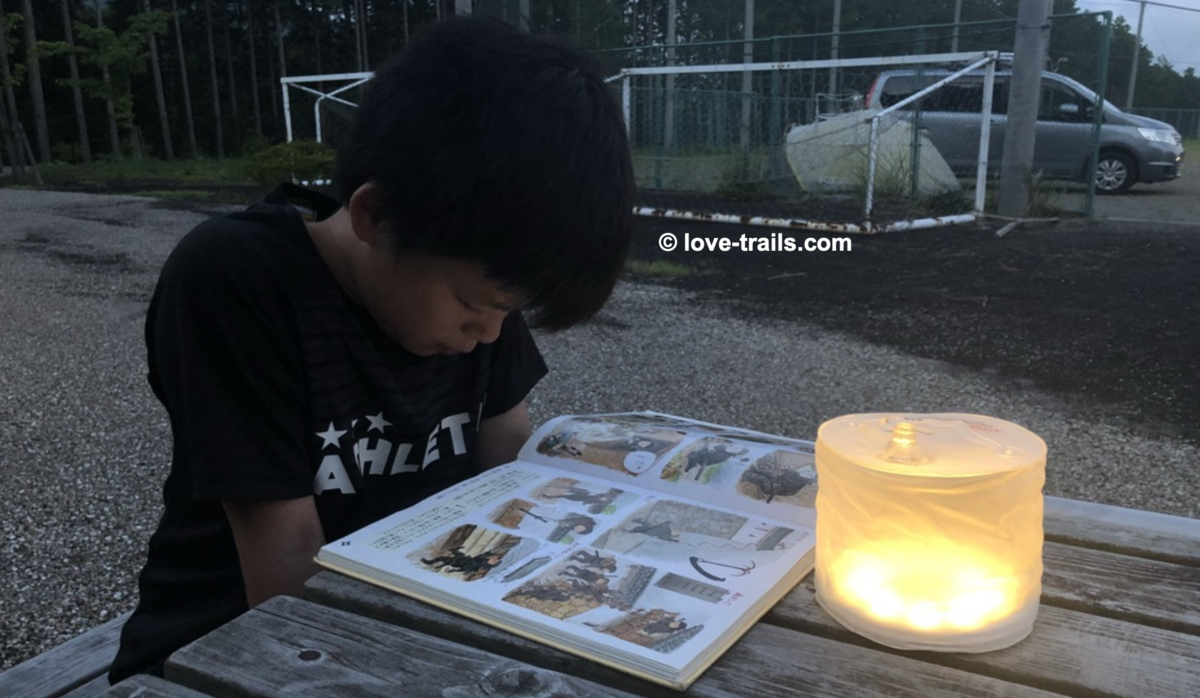 ount Fuji, Japan's highest peak, is a dream destination for tourists worldwide.
ount Fuji, Japan's highest peak, is a dream destination for tourists worldwide.
However, what many tourists don't realize is that poor sleep could turn this dream into a nightmare, affecting your physical performance, cognitive function, and even increasing your risk of altitude sickness.
This article aims to shed light on the importance of sleep in climbing Mt. Fuji and provide practical advice for different climbers, from children and older adults to those with limited physical fitness.
The Effects of Poor Sleep on Mt. Fuji Climbers
Sleep is not merely a rest period; it's a crucial part of your preparation for climbing Mt. Fuji.
Sleep is essential for our body and mind to function properly. It helps us recover from physical exertion, regulate our hormones, boost our immune system, consolidate our memory, enhance our mood, and sharpen our cognition. When we don’t get enough or quality sleep, we impair these functions and put ourselves at risk of various problems.
Lack of sleep can impair your physical performance, slow your reaction times, and affect your decision-making abilities. Moreover, sleep deprivation can increase your susceptibility to altitude sickness, a potentially life-threatening condition that can occur at high altitudes.
The Role of Sleep in Physical Performance
For Mt. Fuji climbers, poor sleep can have serious consequences on their health and performance. Poor sleep can impair their coordination, balance, concentration, reaction time, decision making, and judgment. These impairments can increase the risk of accidents, injuries, or mistakes on the mountain. For example, poor sleep can make climbers more prone to slip or fall on the rocky terrain, lose their way in the dark or foggy conditions, forget their equipment or supplies, or misjudge their pace or stamina.
Sleep is essential for muscle recovery and energy conservation. It helps restore your body's energy reserves that you'll need to climb Mt. Fuji. A good night's sleep ensures you're physically ready for the demanding task ahead.
The Impact of Sleep Deprivation on Cognitive Function and Motivation
Climbing Mt. Fuji requires more than physical strength. It demands mental alertness to navigate the terrain, make quick decisions, and respond to emergencies. Sleep deprivation can impair these cognitive functions, making the climb more challenging and potentially dangerous.
Poor sleep can also affect climbers’ mood and motivation. Poor sleep can make climbers more irritable, anxious, depressed, or stressed. These negative emotions can interfere with their enjoyment of the climb and their interaction with other climbers or guides. Poor sleep can also make climbers less motivated or confident to reach the summit or complete the descent. They may feel more tired or bored and give up easily.
The Correlation Between Sleep and Altitude Sickness
Sleep deprivation can exacerbate the symptoms of altitude sickness, such as headaches, nausea, and dizziness. It can also increase your risk of developing more severe forms of altitude sickness like HAPE (High Altitude Pulmonary Edema) or HACE (High Altitude Cerebral Edema).
The Dangers of Altitude Sickness on Mt. Fuji
Altitude sickness is a common and potentially life-threatening condition that affects many Mt. Fuji climbers. It occurs when the body cannot adapt to the low oxygen levels at high altitudes. It can affect anyone regardless of age, fitness level, or previous experience.
Understanding Altitude Sickness
Altitude sickness has three main forms: acute mountain sickness (AMS), high-altitude cerebral edema (HACE), and high-altitude pulmonary edema (HAPE). AMS is the mildest form and affects about 50% of Mt. Fuji climbers. It causes symptoms such as headache, nausea, vomiting, dizziness, fatigue, loss of appetite, insomnia, or shortness of breath. HACE and HAPE are more severe forms that affect the brain and lungs respectively. They cause symptoms such as confusion, disorientation, hallucination, coma (HACE), or coughing blood (HAPE). They can be fatal if not treated promptly.
The Role of Sleep in Altitude Sickness
Poor sleep can worsen or trigger altitude sickness on Mt. Fuji for several reasons. First, poor sleep can weaken the body’s ability to acclimatize to the high altitude by disrupting the hormonal balance and oxygen delivery. Second, poor sleep can exacerbate the symptoms of altitude sickness by increasing dehydration, inflammation, and pain perception. Lastly, poor sleep can impair the judgment and awareness of altitude sickness by affecting cognition and mood. For example, poor sleep can make climbers ignore or deny their symptoms, or continue climbing despite feeling unwell.
Accommodation Choices and Their Impact on Sleep
Where you choose to sleep the night before your climb can significantly impact your sleep quality and, consequently, your climbing experience.
Car Camping in Parking Lots
Sleeping in your car can be a cost-effective option, but it may not provide the most comfortable night's sleep. If you choose this option, bring along items like a comfortable sleeping bag and a pillow to improve your sleep quality.
Depending on how full the parking lot is, you may be able to pop up a small tent. You may ask the staff.
Bullet Climbing vs Staying in Mountain Huts
Bullet climbing – climbing Mt. Fuji in one go without staying overnight – can be a real test of endurance and can severely disrupt your sleep patterns.
On the other hand, staying in a mountain hut allows you to rest and acclimatize to the altitude, improving your chances of a successful climb. However, if you are uncomfortable sleeping right next to strangers, or other people snoring, you still may not be able to sleep well(It's me).
The Best Practices for Sleeping Well on Mt. Fuji
The good news is that there are some effective ways to prevent or minimize the effects of poor sleep on Mt. Fuji climbers. Here are some general tips and advice for getting enough and quality sleep before and during the climb:
Before the Climb
Try to adjust your sleep schedule to the local time zone and the climbing plan. If you are traveling from a different time zone, try to avoid jet lag by gradually shifting your sleep hours before departure or by exposing yourself to natural light after arrival. If you are planning to climb overnight or early in the morning, try to nap or sleep earlier in the day or evening.
This preparation will help align your body's internal clock with the climbing schedule, ensuring you are alert and energized when you need to be. It's also beneficial to practice good sleep hygiene in the weeks leading up to your climb. This includes maintaining a consistent sleep schedule, creating a restful sleep environment, and avoiding stimulants like caffeine and nicotine close to bedtime.
During the Climb
If you are staying at a mountain hut, follow a regular sleep routine and avoid caffeine, alcohol, or nicotine before bedtime. Try to go to bed and wake up at the same time as other climbers or guides.
Remember, if you want to watch the famous sunrise, you need to wake up super early!
If you are climbing overnight or early in the morning, avoid drinking coffee, tea, or energy drinks that can keep you awake or dehydrate you.
Choosing a Comfortable and Safe Sleeping Option
Choose a comfortable and safe sleeping option that suits your needs and preferences. If you are staying at a mountain hut, make sure to book your reservation in advance, bring your own sleeping bag or liner, earplugs, eye mask, and pillow, and follow the hut rules and etiquette. If you are camping or sleeping in a car before the climb, check the weather forecast, secure your tent or car, and keep warm and dry.
Considering Different Climbing Styles
Consider the pros and cons of different climbing styles and choose the one that works best for you. If you are a bullet climber (one-day), you can save time and money by skipping the hut stay, but you may have less time to acclimatize and more chance to suffer from poor sleep or altitude sickness. If you are a hut stayer (two-day), you can have more time to rest and acclimatize by spending a night on the mountain, but you may have to deal with crowded and noisy conditions at the hut.
Adapting Your Sleeping Plan
Adapt your sleeping plan according to your type of climber and your personal goals. If you are a child or a senior climber, you may need more sleep and more time to acclimatize than an adult climber. If you are a beginner climber or a climber with low confidence or stamina, you may need more sleep and more motivation than an expert climber. If you are a climber who wants to see the sunrise from the summit, you may need to sacrifice some sleep and wake up very early in the morning.
Coping Strategies for Sleep Deprivation
Despite everything you didn, If you find yourself facing the daunting task of climbing Mt. Fuji with insufficient sleep, don't panic. Recognize the signs of sleep deprivation, such as fatigue, irritability, and reduced alertness. Take frequent breaks, stay hydrated, and consume high-energy snacks. If symptoms of altitude sickness occur, descend immediately. Remember, safety should always be your top priority.
Conclusion
Climbing Mt. Fuji is a dream for many, but without proper sleep, it can quickly turn into a nightmare. By understanding the importance of sleep and taking the necessary precautions, you can ensure your climb is a memorable and safe experience. Remember, the journey to the top of Mt. Fuji is not just about reaching the summit; it's about the entire experience, and a good night's sleep is a crucial part of that experience.
